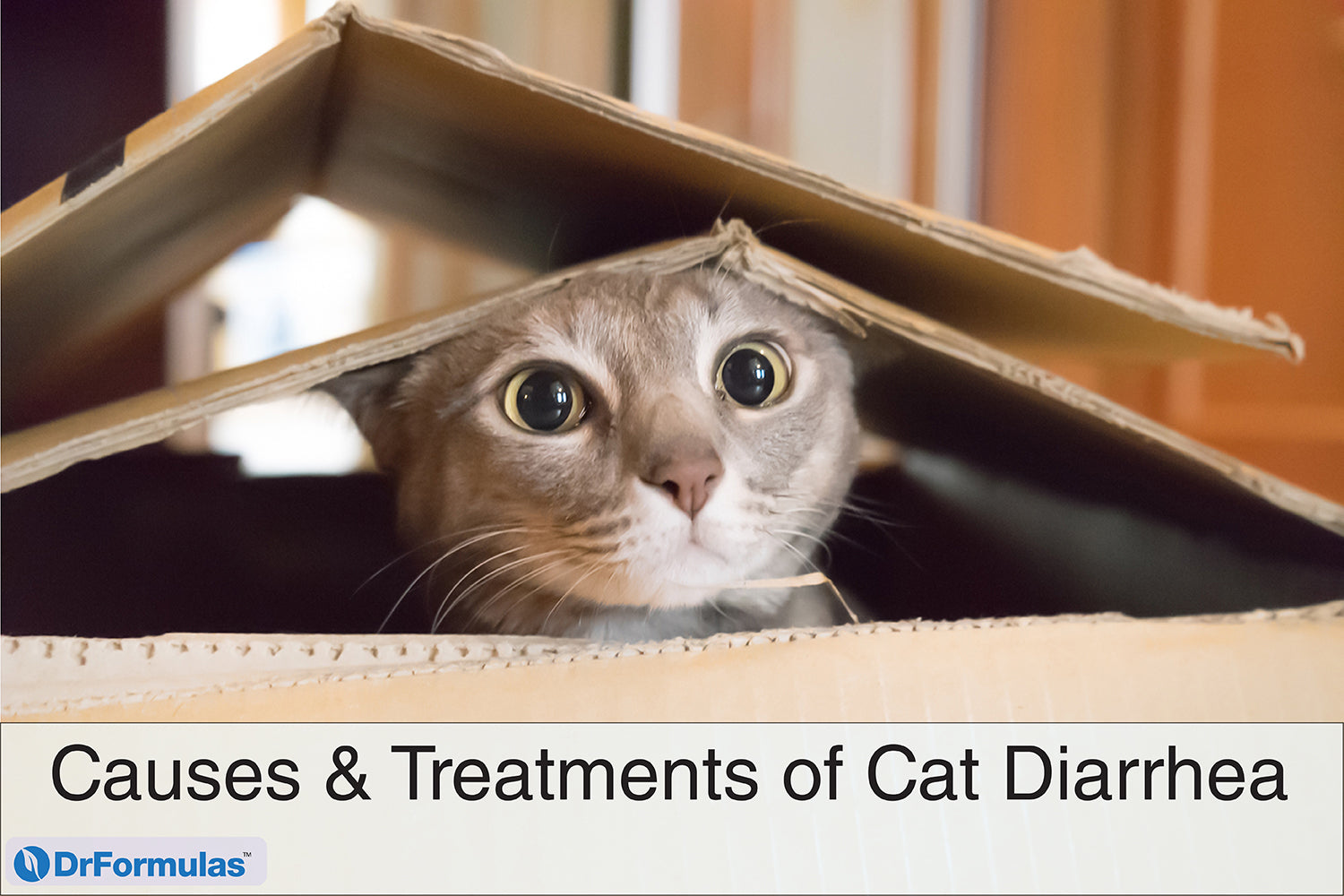
Diarrhea is a fairly common problem for cats. There are many causes of diarrhea in cats and like in humans, some of those can be helped by taking a probiotic. We will go over what causes of diarrhea can be helped with probiotics and which ones cannot.
Which Causes of Cat Diarrhea do Probiotics Help With?
Medications that Disrupt Gut Flora
Probiotics are microorganisms that normally reside inside the gut and aid with digestion, immunity, and the production of certain essential vitamins. These populations of microorganisms help support normal bowel movements but can be disrupted. The most common cause of microflora disruption is the use of antibiotic medications.
Antibiotic medications commonly cause diarrhea because they wipe out existing gut microbes, allowing bad microbes to take over and cause diarrhea. It happens so often that the condition is called antibiotic-associated diarrhea.
Taking probiotics can help restore normal gut flora and diarrhea in cats.
Poor Diet
Probiotic populations also change with diet. Diets rich in prebiotics and fiber help support probiotic growth. Some of the major cat food brands do not have the best combination of nutrients for probiotic growth. Over time, probiotic populations can dwindle and bowel movements can become erratic.
Infectious Diarrhea
Probiotic populations can also be overwhelmed by the appearance of a diarrhea-causing microbe. In these situations it may be helpful to supplement your cat's diet with a probiotic in an attempt to repopulate the gut microflora. The idea is to build up a diverse microbiome that can fight off bad microbes.
However, some gut pathogens are particularly persistent and may require the use of antibiotics. If this is the case then probiotics should be supplemented to prevent antibiotic-associated diarrhea. Ask your vet if your pet had developed diarrhea after eating food of questionable cleanliness.
Irritable Bowel Syndrome (IBS)
Irritable bowel syndrome is a condition where the bowels become sensitive or hyperspasmodic. The causes of IBS are unknown but IBS can develop after a gut infection. It is theorized that the immune system develops an intolerance to normal gut bacteria because of their association with infectious pathogens at the time of infection.
Probiotics may help with IBS by changing the population of normal gut flora and reducing inflammation. In humans, probiotics have been shown to reduce IBS symptoms3.
Inflammatory Bowel Disease (IBD)
Inflammatory bowel diseases such as Crohn's Disease or Ulcerative Colitis can also develop in cats. IBDs can be considered as an extreme case of IBS whereby the immune system actually mounts an immune response against the lining of the gut. Probiotics may be able to help the inflammation and clinical trials in humans do show benefits2.
Other Causes of Cat Diarrhea that Probiotics Won't Help With
There are many things that can cause diarrhea in cats. The causes of cat diarrhea that probiotics may not help with are1:
- A change in diet
- An allergic reaction
- Parasites and other pathogens (e.g. roundworm)
- Cancer of the digestive tract
These causes of diarrhea require either removal of the offending cause or professional treatment with a veterinarian.
What is the Best Probiotic for Cats?
Cat probiotics come in a wide range of forms. Some of the most popular include powders, pills, infuse probiotics cat treats. If you want to give your cats probiotics, stick to the dosage recommended by a vet or on the package.
The best probiotics to administer to cats will not come in a powder or chewable form because those probiotics will be exposed to acidic stomach acid. Look for one with an enteric coating or stomach acid resistant coating.
However, if your cat does not like pills you may need to sprinkle probiotic powder on its food. Pre-dosed probiotic powders are convenient as you can sprinkle & mix them in your cat's daily food.
If your cat is experiencing diarrhea, you want to try a probiotic before going to the vet.However, if the probiotic does not help then you may want to bring your cat to the vet for a proper diagnosis and workup.
Sources:
1. http://pets.webmd.com/cats/guide/cat-diarrhea#1
2. https://onlinelibrary.wiley.com/doi/full/10.1111/apt.14203
3. https://www.ncbi.nlm.nih.gov/pmc/articles/PMC2709042/


